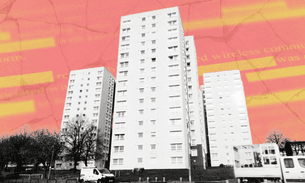
Rule changes to revolutionise family court reporting
Journalists should soon be able to report on the detail of what takes place inside family courts in England and Wales under transformative rule changes that are a major win for open justice.
The head of family courts, Sir Andrew McFarlane, has announced a string of proposals following a two-year review into the transparency of family court hearings, which for decades have been held behind closed doors.
The Bureau of Investigative Journalism has developed a framework for a family court reporting pilot, which is now being considered by Sir Andrew as a possible first step towards implementing the new reporting rules. The proposed pilot gives accredited journalists the right to report from family courts, rather than having to make expensive and onerous applications to the judge in each case.
Some of the state’s most draconian powers – to remove children from their parents, to have them adopted, to deprive children of their liberty – have been exercised by judges in secret family hearings for more than six decades. The media is currently banned by law from reporting any of the detail of these hearings, including human rights breaches by local authorities and poor practice by judges. Since 2009, journalists can, in most cases, attend and watch as a case unfolds, but if we report what we see, even anonymously, we risk being found in contempt of court. The sanction is an unlimited fine, jail, or both.
Nor can any family member talk to anyone, let alone a reporter, about life-changing injustices they feel have taken place in a family court. The sanction if they are discovered to have done so is the same. Some parents in family law proceedings have been jailed for contravening this ban on exercising what would normally be regarded as their right to freedom of speech.
Millions of pounds, thousands of hours of court time, plus the intellect of the best legal brains and the determination of the most tenacious journalists have been expended in fighting, sometimes successfully, sometimes not, for the right to publicly scrutinise the processes and decision-making of the family justice system.
In 2019, when Sir Andrew announced a review of transparency in family courts, he asked whether “the line was currently drawn correctly” between protecting people’s privacy and bringing accountability and public confidence to the system.
Make change possible
Investigative journalism is vital for democracy. Help us to expose injustice and spark change
Click here to support usScores of individuals and organisations submitted evidence to the review consultation – including me, drawing from my years of reporting and attempting to report on family court proceedings. My submissions included the rationale for a reporting pilot, draft legal orders and reporting rules under which journalists would be allowed to report.
The president of the family division intends that a family court reporting pilot will initially operate in one rural and one urban area as a first step in putting the new reporting rules into effect; he stated that “active consideration” will be now given to trialling the pilot framework which the Bureau has supported me to develop, with funding from the Joseph Rowntree Charitable Trust, over the past eight months.
Rachel Oldroyd, managing editor and CEO of the Bureau, said: “The ability to report on this crucial area of the justice system has been too difficult for too long. As a society, we should be able to see more of this process that goes right to the heart of the role of the state in family life and relationships. We at TBIJ welcome the chance to explore how that reporting could be done carefully and sensitively in the public interest.”
Rather than starting from a place where media is not allowed to report, the new default will be that reporting is permitted. The judge in each case will retain the discretion to add reporting restrictions on the basis that children and their families’ anonymity must always be protected.
Other measures that will fundamentally alter the transparency landscape include allowing family members to speak to journalists without fear of being held in contempt. Family judges must also publish at least 10% of their judgments so the public can observe judicial reasoning for the decisions taken in family courts.
In addition, links between senior judges in the regions and their local media will be encouraged, and at a national level, it is intended that a strong working relationship will be fostered between industry body the Society of Editors and the office of the president.
“It is for me, as president and head of family justice, to take the lead in achieving greater openness,” Sir Andrew said, acknowledging that “a genuine increase in transparency requires a major cultural shift”. The review’s conclusions are not the end of the process he noted, but are “just the start. What must now follow is a period of accelerated change”.
Header image: A mother holds her baby girl. Credit: incamerastock/Alamy Stock Photo




